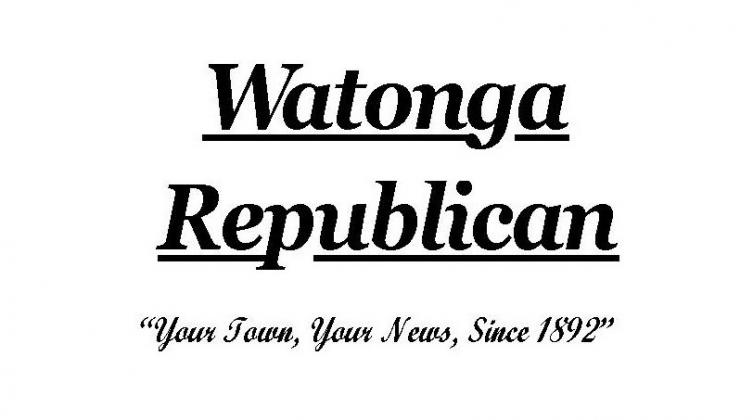Watonga residents might see an increase in their utility bills before the end of the year.
There are still a lot of moving parts that the city council discussed Feb. 20 at its regular meeting.
Mayor Bill Seitter pointed out the residents had heard the information when the voters passed a one-cent sales tax to be dedicated to the water and sewer projects. The proceeds from the tax are put toward the $850,000 annual payment for the loan taken out to build the facilities. However, it only meets about half the cost, or $400,000. The rest must be met through the city coffers.
Garbage rates, too, will increase.
“We don’t have any choice on the garbage,” Seitter said. The contract between the city and Veterans Waste Solutions has a built-in 3.4% annual increase to cover the increased cost of doing business such as fuel, equipment, insurance and wages.
The contract is for five years, renewed in oneyear increments.
However, the garbage increase might not stop at the cost of living.
The city currently operates the transfer station south of town. Residents can show a utilities bill and dump up to one ton free per month. Others pay about $15 per load. But the trash fills multiple roll-off loads each month, costing the city about $7,000 per month or $84,000 annually. The added cost of trash service would pay for that cost as well. In most municipalities, the enterprise funds like light, water and sewer pay for themselves.
Seitter said, “We can put the $84,000 on everyone or just on those who dump there.” He also pointed out the budgeted cost increase in garbage rates for last year was not enacted.
Other towns charge much more than Watonga’s rate to dump without a utility bill, close to $200 per load at Norman.
The council took no action on the transfer station costs, instead choosing to survey other communities to see how they handle the increasing cost of dealing with garbage.
As far as the utilities increase, Seitter noted that expenses there are going up as well, expenses such as poles, wire and transformers. The council hopes to make the change during a cooler month, so it won’t impact residents so drastically as it would during the already budget busting heat of the summer.
There was no action taken on the matter in February, but the council members know it is coming soon. The changes are necessary to repair and improve the infrastructure around town.
“If you don’t have the infrastructure,” said council member Ryan Bruner, “you don’t have a chance of anybody coming here.”

